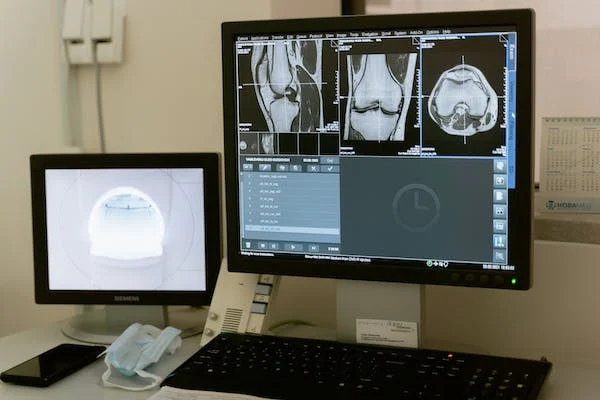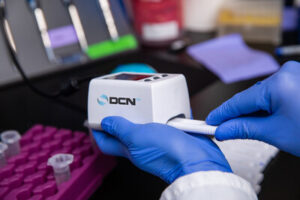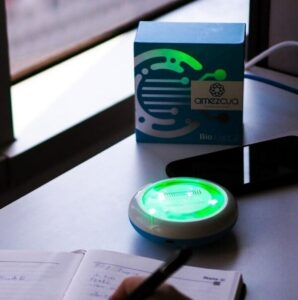BioVie’s NE3107 Demonstrates Potential Improvements in Motor and Non-motor Symptoms for Parkinson’s Disease Patients and May Be Realigning Physiological Processes for Alzheimer’s Patients in Data to be Presented at the International Conference on Alzheimer’s and Parkinson’s Diseases 2024

Illustration depicting the potential benefits of NE3107 in treating neurological disorders
BioVie Inc., (NASDAQ: BIVI) (“BioVie” or the “Company”) a clinical-stage company developing innovative drug therapies for the treatment of neurological and neurodegenerative disorders and advanced liver disease, today announced two upcoming presentations at the International Conference on Alzheimer’s and Parkinson’s Diseases 2024 (AD/PD™ 2024) to be held March 5-9, 2024 in Lisbon, Portugal.
Improvements in non-motor symptoms correlated with improvements in motor symptoms for Parkinson’s Disease patients
The presentation Improvement of Non-Motor Symptoms with NE3107 Adjunctive to Carbidopa/Levodopa in Patients with Parkinson’s Disease: A Phase 2A, Placebo-Controlled Study will be presented at 15:10 GMT on March 9, 2024 and suggest improvements of NE3107-treated patients with non-motor symptoms. These findings complement previously reported improvement in motor symptoms in patients treated with NE3107 and demonstrate potential intrinsic, levodopa-enhancing activity of NE3107 that is consistent with data from animal models.
NE3107-treated patients experienced a significant improvement of -2.4 points for the sleep/fatigue domain of the Non-Motor Symptom Scale (NMSS) in Parkinson’s Disease, whereas placebo patients experienced a worsening of +1.0 points (p=0.0159). Sleep/fatigue domain improvements correlated with motor score improvements (r=0.51; p=0.0259). More patients on NE3107 had improvements in the NMSS sleep/fatigue domain, while more patients on placebo worsened.
NMSS changes for NE3107-treated patients were driven by improvements of -0.87 in fatigue/lack of energy (p= 0.0005) and improvement of -2.91 on the urge to move legs/restlessness in legs (p=0.0036). Placebo patients saw no significant change of -0.39 on fatigue (p=0.1242) and -0.71 on leg restlessness (p=0.5141).
The new data on non-motor improvements complements previously presented data1 showing NE3107-treated patients saw a 3+ points advantage compared to placebo on the Part 3 (motor) score of the Motor Disease Society-Unified Parkinson’s Disease Rating Scale (MDS-UPDRS). In patients younger than 70 years old, the advantage was over 6 points. Furthermore, 26% of NE3107-treated patients experienced improvement in their ability to move, having Part 3 scores prior to their first morning dose of carbidopa/levodopa that were equal to or better than Part 3 scores associated with their being in the “on” state after carbidopa/levodopa treatment at the start of the study, whereas none of the placebo patients had the similarly improved morning Part 3 scores. The difference was statistically significant (p=0.046).
“These data suggest that NE3107 as adjunct therapy to levodopa may hold promise in ameliorating specific non-motor symptoms of Parkinson’s Disease, particularly in sleep/fatigue and restlessness of the legs,” stated Joseph Palumbo, BioVie’s Chief Medical Officer. “These findings extend previously reported improvement in motor symptoms with NE3107 and demonstrate potential intrinsic and levodopa-enhancing activity of NE3107 that is consistent with data from animal models and support further clinical investigation of NE3107 in late-phase trials.”
Possible physiological realignment in Alzheimer’s Disease
The presentation Clinical Outcomes from a Phase 3, Randomized, Placebo-Controlled Trial of NE3107 in Subjects with Mild to Moderate Probable Alzheimer’s Disease will be presented at 14:50 GMT on March 8, 2024 reconfirms topline cognitive and functional data previously presented and will provide additional biomarker data and analyses.
The NM101 Trial enrolled 439 patients through 39 sites. The Company previously reported that upon trial completion, significant deviation from protocol and Good Clinical Practice violations were found at 15 sites, causing the Company to exclude all patients from these sites. After these exclusions and other exclusions per the statistical analysis plan, 57 patients in the Per-Protocol population were verified to have taken study drug from pharmacokinetics data and completed the full duration of the trial. Baseline and completion data were available for 50 subjects (NE3107, n=24 and placebo, n=26; 7 subjects randomized to placebo discontinued before day 150), and DNA methylation data were available for 33 subjects in this cohort.
Due to the exclusion of data from so many sites the trial missed statistical significance but showed promising directional data on cognitive and functional measures. NE3107-treated patients saw an advantage compared to placebo of -0.95 (68% slowing of decline) on CDR-SB, -0.94 (26%) on ADAS-COG-12, -0.43 (139%) on ADAS-CGIC, -0.03 (27%) on ADCOMS, +1.02 (40%) on MMSE, and +3.08 (47%) on ADCS-ADL.2
Significant improvements for NE3107-treated patients vs. placebo were observed for biological age deceleration (-3.87 years, p=0.012), fasting glucose levels (-8.5 mg/dL, p=0.036), cholesterol (-15 mg/dL, p=0.049), HOMA2 beta cell function (+12.4%, p=0.040), HOMA2 Insulin Sensitivity (+1.95%, p=0.018), and MCP1 (-90.5 pg/mL, p=0.007). Trending improvements in HOMA2 Insulin Resistance of -0.020 (p=0.0.063) were also observed.
A statistical technique called Principal Component Analysis3 identified neurological assessments and biological age deceleration as the two “principal components” that maximally explained the data across the large set of variables collected. Among NE3107-treated patients, correlations of neurological assessments and biological age deceleration with improved metabolic and glycemic control, improved neuropsychiatric indices, and levels of chemokines associated with microglial attraction to and digestion of Aβ plaques. Among placebo patients, neurological assessments and biological age deceleration were correlated with increased metabolic inflammatory measures, M1 to M2 transition, and plaque phagocytosis.
“We previously reported that NE3107 appeared to decrease metabolic inflammation-driven systems dysregulation,” stated Chris Reading, BioVie’s Senior Vice President of Alzheimer’s Disease Programs. “Principal component analyses, divergent correlations, and epigenetic analysis suggest that metabolic inflammation may be a driver of biological aging and AD, and that NE3107 might have the potential to realign physiological processes consistent with decreased neurocognitive decline and diseases of aging.”
“The data being presented reinforce our confidence in the potential of NE3107 to have a meaningful impact on core symptoms of both Alzheimer’s disease and Parkinson’s disease,” stated Cuong Do, BioVie’s President and CEO. “These findings add to the growing body of evidence supporting our hypothesis that by selectively modulating inflammation and enhancing insulin sensitivity in the brain, NE3107 could offer benefits in slowing disease progression and improving the lives of patients living with these devastating conditions.”








